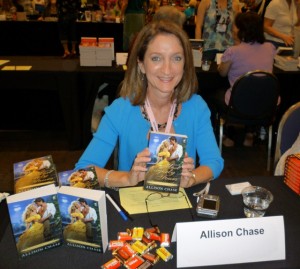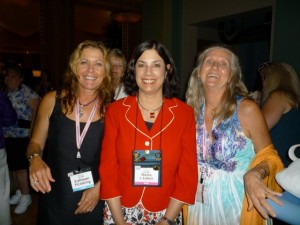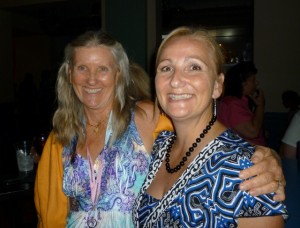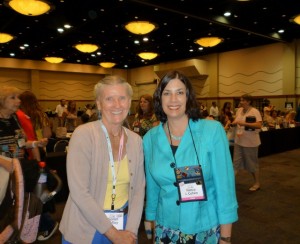Wednesday, July 28, 2010
I arrived at the Dolphin Resort with my roomies for the weekend, authors ALLISON CHASE and SHARON HARTLEY. We went early in the morning to register at the RWA Annual Conference and to drop off our promo items in the goody room. Not too many people were around but we figured it would get crowded later. We said hello to JOYCE HENDERSON and LYNETTE HALLBERG from SWFRW and to DARA EDMONSON and MICHELLE YOUNG from CFRW. MONA RISK was there from FRW looking for the booksigning room to drop off her stuff for later.
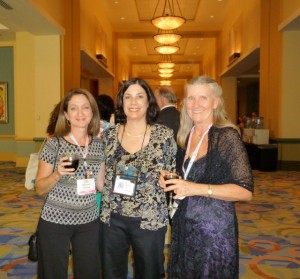
At 2:30, we attended the Librarian Networking Event where we met librarians from Florida and around the country. Many authors were there too and offered book giveaways and other promo items for the librarians. The mass Literacy Booksigning followed with over 500 authors in alphabetical rows sitting with their books in front of them and cashiers at the far end. NY Times Bestselling authors like HEATHER GRAHAM and SUSAN ELIZABETH PHILLIPS had their own spots. I roamed the aisles greeting fellow authors and introducing myself to people I hadn’t met. I greeted JUDI MCCOY who writes the dog walker mystery series, and other authors whose names were familiar from the various listserves where I hang out online. A bevy of our own FRW authors were present: KATHY PICKERING, BONNIE VANAK, DEBBIE ANDREWS, MICHAEL MEESKE, ONA BUSTOS, and many more. The two hours went fast, and over $55,000 was raised for adult literacy.
